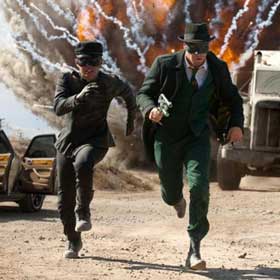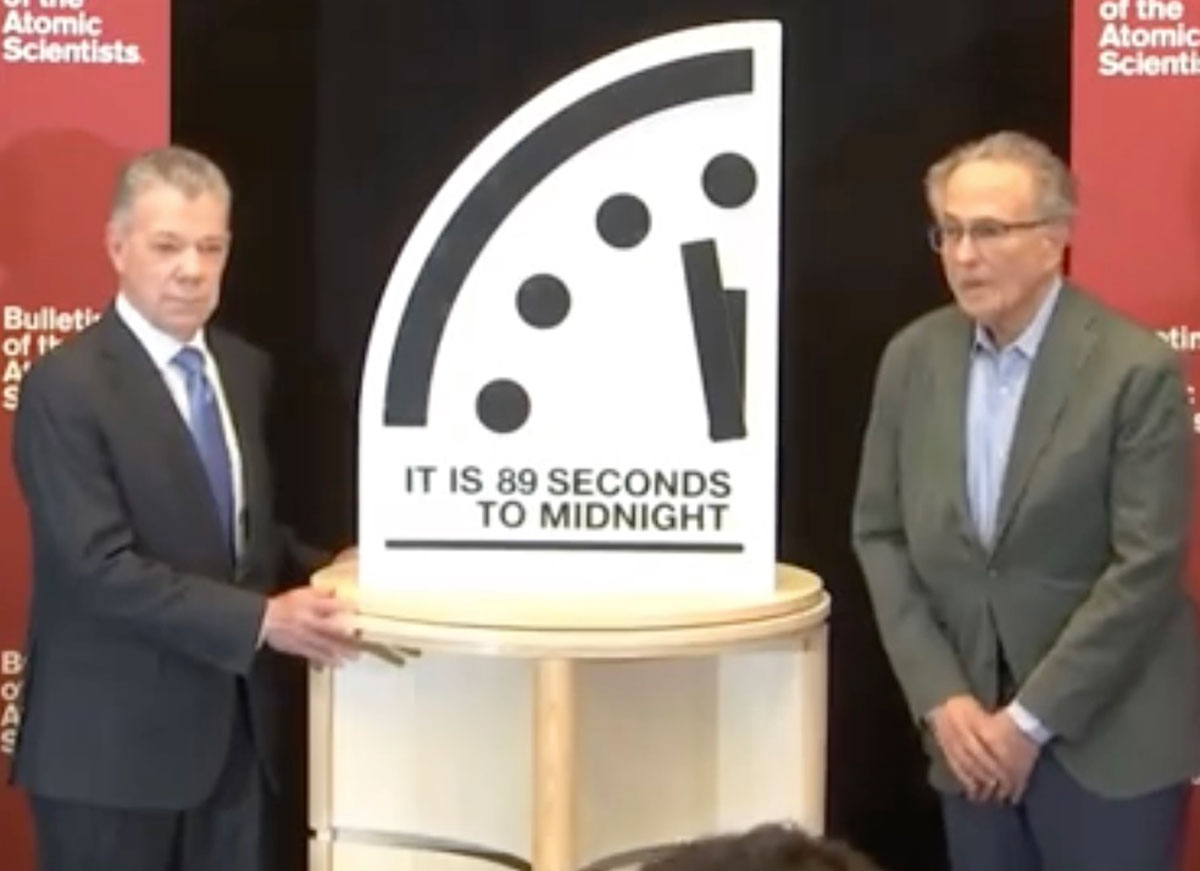The Green Hornet

2/5
It may be shocking for many moviegoers to learn that The Green Hornet had still been in production even before the current generation of super hero franchises: in other words, before the then ultra-hip and super-cool franchises of Spider-Man and X-Men even needed a reboot! The delay can probably be attributed to a wide array of practical considerations, but to be overly reductive–to the point of possibly even being wrong–The Green Hornet is just sort of an uninteresting comic book hero, even bordering on campy and silly: a Batman rip-off that somehow withstood the test of time, sort of. So surely only an ironic rendering of the Hornet would attract an audience, and who better to helm such a rendering than oddball art-y dude Michel Gondry and who better to star in it than someone who "don't look like no super hero": wacky, pudgy Seth Rogen.
Rogen's Britt Reid a.k.a. The Green Hornet, heir to a wealthy newspaper publisher, accidentally becomes a masked vigilante when he and his father's former car mechanic Kato (Jay Chou) attempt to stop a mugging, but are actually mistaken for criminals. Soon the crime-stopping duo have set their sights on Russian mobster Benjamin Chudnofsky (Christoph Waltz), so they seek the help of a secretary who minored in Criminology in college, Lenore Case (Cameron Diaz), whom both proceed to fall in love with, a factor which complicates manners when the devious Chudnofsky begins to play the jealous feuding chums against each other.
Rogen and Evan Goldberg's screenplay can be described as a "graze-or-miss affair," firstly because very little of it can be said to "hit," and secondly because my easy, boring inversion of a hackneyed expression should offer some insight into their comedic method. For example: the scene introducing Christoph Waltz's crime boss Benjamin Chudnofsky, which features an amusing cameo by James Franco as new-villain-in-town Danny "Crystal" Clear, whose hilariously vulgar monologue–in which he tells Chudnofsky that he's a better crime boss because he has a "name that people can pronounce"–is probably a high point of the film, Rogen and Goldberg take what is probably one of the most clichéd scenes in the history of superhero movies–the snotty upstart challenging the old kingpin, only to be summarily checked–generally effective as a demonstration of the antagonist's cruelty and ingenuity, but render it in as self-conscious a manner as possible. Self-aware stock-character Danny Clear calls attention to his henchmen's Gucci suits and other clues that they are "devices" in an otherwise textbook superhero movie scene. However, moments later, Rogen and Goldberg employ a similarly familiar device–the inconspicuously left-behind briefcase that turns out to be a bomb–but without the wink to the camera. But, to their credit, two hours of fairly obvious comedic observations might have been too unbearable and, as a result, the film is half-paean and half-parody.
Part of the problem with this noncommittal method is that Gondry seems to be at a loss as to how to stage the film's more "serious" scenes. Of course, this was never a problem in the comedy dramas of his earlier film career, but it seems that he simply cannot relate to The Green Hornet's cardboard cutouts of characters, be they "dissolute party animal heir" or "unctuous, sinister titan of industry," so they are left to stand as shambling mock-ups. James' stern admonition of his dissolute partied-out son feels almost as awkward and clumsy as James' Johnny Cash-scored funeral, which follows so closely and so awkwardly on its heels as to cause some general confusion, and attended by a Britt intendedly rapt with conflicting emotions, but portrayed by a still kind of hilarious looking Rogen. This is a crucial scene because it will later justify Britt and Jay's reckless act of destroying the statue erected in James' honor. But because Rogen can only play it apathetically, later on it's not really clear what has motivated him to destroy the statue. So because Rogen cannot convey a complex emotion like anger at a dead father, the subsequent scenes make no sense and feel a bit like filler material: the glue required to bind plot point a to plot point b.
It's also not really clear why Britt and Kato decide to become superheroes–or, rather, why Kato should with his technological and martial arts expertise become a superhero and why Britt should become a guy that hangs around with a superhero–and the latter's explanation is largely incoherent. Most of the film unravels in this way: Britt somehow has the bright idea to use his father's newspaper to publicize Kato's and his vigilant exploits, Kato accidentally stumbles upon the iconic name which all of Britt's staff writers agree is quite "awesome" (for some reason). At times the self-reflexivity of Rogen and Goldberg's script feels more like laziness than wryness: when Britt asks Lenore how she knows so much about the newspaper industry, she tells him that she majored in Journalism and had a minor in Criminology. The character's minor in Criminology will later prove useful to the crime fighting duo, and is therefore a useful trait for her to have. But that Lenore told Britt that she had a minor in Criminology in answer to the question of how she knew so much about the newspaper industry makes absolutely no sense: in other words, this was deemed by the screenwriters to be the best method of revealing this crucial detail of the character's academic background, and it is a poor method.
Those who anticipating Gondry-fied fight sequences will be surprised, disappointed and, actually, not really all that surprised, given the film's general laziness, to find that they are virtually indistinguishable from those of any other post-Matrix action film. This might be one of the most disappointing aspects of the film: it finds a director with a reputation as an "auteur" going out of his way to anonymize himself. And the truth is that, for a comedic film, most of the jokes really don't work: there's really only one which is Britt accidentally revealing a latent attraction to Kato by means of some weak and in most cases quite "single" double entendres and their effect is somewhat diminsihed after the second or third repetition.
RELATED ARTICLES
Get the most-revealing celebrity conversations with the uInterview podcast!





Leave a comment